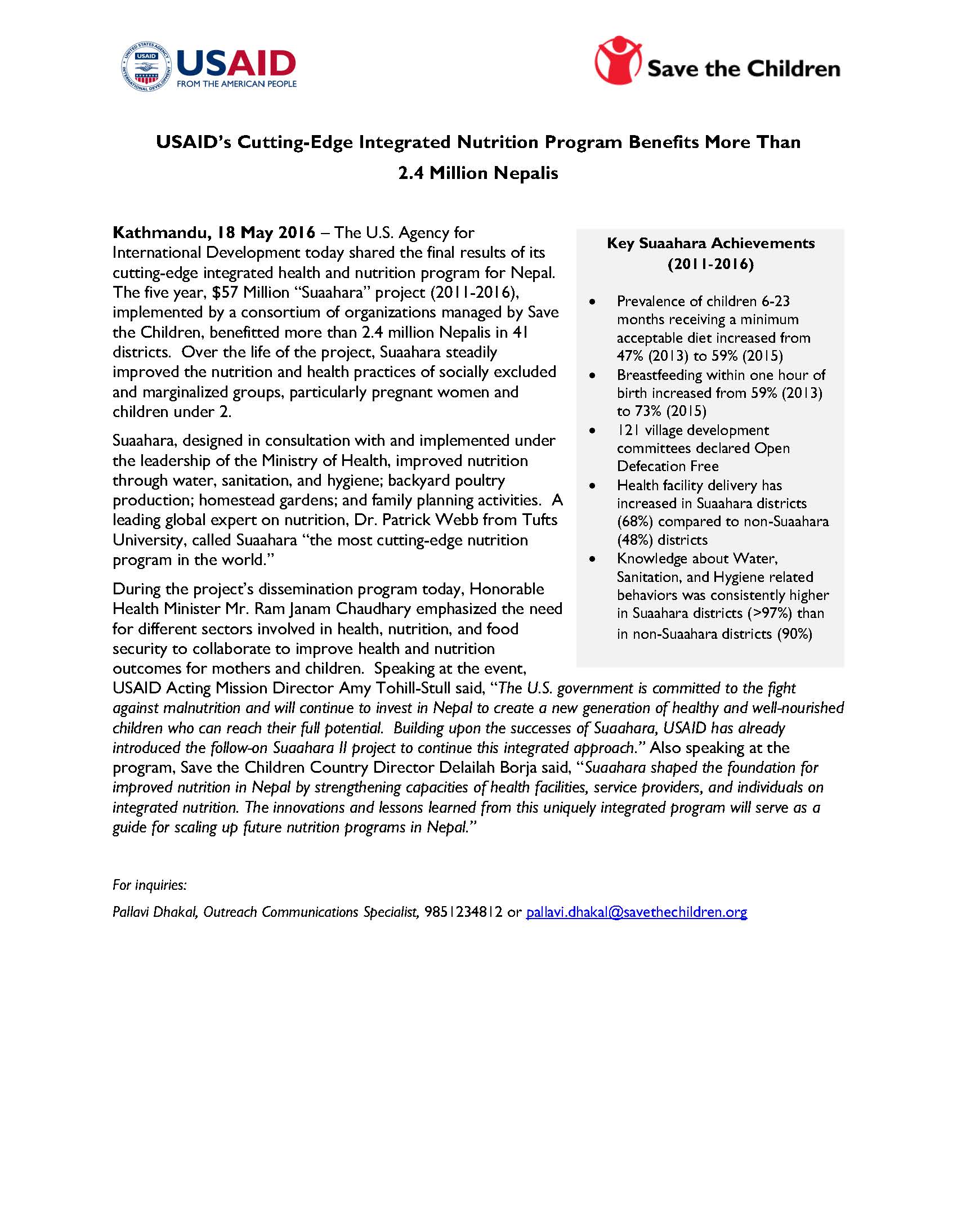For Immediate Release
Kathmandu, 18 May 2016 – The U.S. Agency for International Development today shared the final results of its cutting-edge integrated health and nutrition program for Nepal. The five year, $57 Million “Suaahara” project (2011-2016), implemented by a consortium of organizations managed by Save the Children, benefitted more than 2.4 million Nepalis in 41 districts. Over the life of the project, Suaahara steadily improved the nutrition and health practices of socially excluded and marginalized groups, particularly pregnant women and children under 2.
Suaahara, designed in consultation with and implemented under the leadership of the Ministry of Health, improved nutrition through water, sanitation, and hygiene; backyard poultry production; homestead gardens; and family planning activities. A leading global expert on nutrition, Dr. Patrick Webb from Tufts University, called Suaahara “the most cutting-edge nutrition program in the world.”
During the project’s dissemination program today, Honorable Health Minister Mr. Ram Janam Chaudhary emphasized the need for different sectors involved in health, nutrition, and food security to collaborate to improve health and nutrition outcomes for mothers and children. Speaking at the event, USAID Acting Mission Director Amy Tohill-Stull said, “The U.S. government is committed to the fight against malnutrition and will continue to invest in Nepal to create a new generation of healthy and well-nourished children who can reach their full potential. Building upon the successes of Suaahara, USAID has already introduced the follow-on Suaahara II project to continue this integrated approach.” Also speaking at the program, Save the Children Country Director Delailah Borja said, “Suaahara shaped the foundation for improved nutrition in Nepal by strengthening capacities of health facilities, service providers, and individuals on integrated nutrition. The innovations and lessons learned from this uniquely integrated program will serve as a guide for scaling up future nutrition programs in Nepal.”








Comment
Make a general inquiry or suggest an improvement.